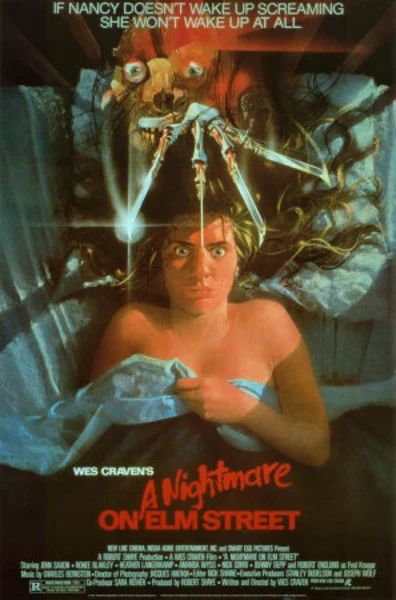In tribute to Wes Craven, 1939 to 2015, an old post. Rest in dreamless peace, sir.
Wake me when it's over
I wouldn't call Wes Craven's A Nightmare on Elm Street (1984) with its attempts to blur the line between dream and reality an especially great horror movie, or even a particularly unique one. Remember that Joseph Ruben's wittily conceived Dreamscape came out the same year, that David Lynch's no less nightmarish Eraserhead screened over a decade ago, that Roman Polanski's Repulsion had arms sprouting out of apartment walls to grope Catherine Deneuve almost twenty years before, that Herk Harvey's Carnival of Souls (to which Craven's film bears a striking similarity) played in drive-ins three years previous to Polanski's, that most of Luis Bunuel's career (from 1929 to 1977) was predicated on the blurring of the line between reality and dream, and that Carl Dreyer's Vampyr (arguably the greatest nightmare ever realized on the silver screen) was released in 1932, a silent film belatedly converted to sound--a time when dreams found their voice, and spoke to us directly.
No, I wouldn't call Craven's movie great or even unique, but it was driven by a couple of clever ideas, it had a handful of striking imagery, and it's directed with a supple, not entirely ungraceful, visual style. One remembers it fondly for the way it spoke to teenagers about the deceitful nature of adults, the vulnerability of youths left unaware of their secret histories, their childhood traumas.




